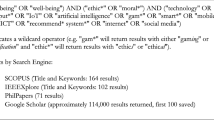Abstract
As a part of a research project on Dignity and Older Europeans (Fifth Framework (Quality of Life) Programme) I explore in this paper a set of notions of human dignity. The general concept of dignity is introduced and characterized as a position on a value scale and it is further specified through its relations to the notions of right, respect and self-respect. I present four kinds of dignity and spell out their differences: the dignity of merit, the dignity of moral or existential stature, the dignity of identity and the universal human dignity (Menschenwürde). Menschenwürde pertains to all human beings to the same extent and cannot be lost as long as the persons exist. The dignity of merit depends on social rank and position. There are many species of this kind of dignity and it is very unevenly distributed among human beings. The dignity of merit exists in degrees and it can come and go. The dignity of moral stature is the result of the moral deeds of the subject; likewise it can be reduced or lost through his or her immoral deeds. This kind of dignity is tied to the idea of a dignified character and of dignity as a virtue. The dignity of moral stature is a dignity of degree and it is also unevenly distributed. The dignity of identity is tied to the integrity of the subject's body and mind, and in many instances, although not always, also dependent on the subject's self-image. This dignity can come and go as a result of the deeds of fellow human beings and also as a result of changes in the subject's body and mind.
Similar content being viewed by others
REFERENCES
Bayertz, K. (1996) Human Dignity: Philosophical Origin and Scientific Erosion of the Idea. In K. Bayertz (Ed.), Sanctity of Life and Human Dignity. Dordrecht, The Netherlands: Kluwer.
Beyleveld, D., and Brownsword, R. (2000) Human Dignity in Bioethics and Biolaw. Oxford: Oxford University Press.
Birnbacher, D. (1996) Ambiguities in the Concept of Menschenwürde. In K. Bayertz (Ed.), Sanctity of Life and Human Dignity. Dordrecht, The Netherlands: Kluwer Academic.
Council of Europe. (1997) Convention for the Protection of Human Rights and Dignity of the Human Being With Regard to the Application of Biology and Medicine Convention on Human Rights and Medicine. (European Treaty Series No. 164.) Strasbourg, France.
Dillon, R.S. (1995) Introduction. In R.S. Dillon (Ed.), Dignity, Character, and Self-Respect. London: Routledge.
Fedoryka, D.P. (1996) Ontological and Existential Dimensions of Human Dignity. In M. Crespo (Ed.), Menschenwürde: Metaphysik und Ethik. Heidelberg, Germany: Universitätsverlag C. Winter.
Honneth, A. (1992) Integrity and Disrespect: Principles of a Conception of Morality Based on the Theory of Recognition. In Political Theory (Vol. 20, pp. 187–201).
Kant, I. (1997) Foundations of the Metaphysics of Morals (Translated With an Introduction by L.W. Beck). Upper Saddle River, NJ: Prentice-Hall.
Kolnai, A. (1976) Dignity, Philosophy 51, 251–271.
Ministry of Health and Social Affairs, Sweden. (1997) Health and Medical Services Act, Law decided by the Riksdag 1996:786, Stockholm, Sweden.
Ministry of Health and Social Affairs, Sweden. (2001) Death Everybody's Concern, Swedish Government Official Report 2001:6, Stockholm, Sweden.
Moody, H.R. (1998) Why Dignity in Old Age Matters. In R. Disch, R. Dobrof, and H.R. Moody, (Eds.), Dignity and Old Age. New York: The Haworth.
Pico della Mirandola, G. (1948) On the Dignity of Man. In E. Cassirer, P.O. Kristeller, and J.H. Randall (Eds.), The Renaissance Philosophy of Man. Chicago: The University of Chicago Press.
Spiegelberg, H. (1970) Human Dignity: A Challenge to Contemporary Philosophy. In R. Gotesky and E. Laszlo (Eds.), Human Dignity: This Century and the Next, [Ort] (pp. 39–64). Gordon and Breach Science.
Statman, D. (2000) Humiliation, Dignity and Self-Respect. Philosophical Psychology 13, 523–540.
Sulmasy, D.P. (1997) Death With Dignity: What Does It Mean? Josephinum Journal of Theology 4, 13–23.
Szawarski, Z. (1986) Dignity and Responsibility. Dialectics and Humanism, 2–3, 193–205.
Unesco. (1997) Universal Declaration on the Human Genome and Human Rights, Declaration adopted by the General Conference of Unesco, Paris.
United Nations. (1948) The Universal Declaration of Human Rights, (Adopted and Proclaimed by General Assembly Resolution 217 A (111) of 10 December 1948), The Office of the High Commissioner for Human Rights, Geneva.
Author information
Authors and Affiliations
Rights and permissions
About this article
Cite this article
Nordenfelt, L. The Varieties of Dignity. Health Care Analysis 12, 69–81 (2004). https://doi.org/10.1023/B:HCAN.0000041183.78435.4b
Issue Date:
DOI: https://doi.org/10.1023/B:HCAN.0000041183.78435.4b




